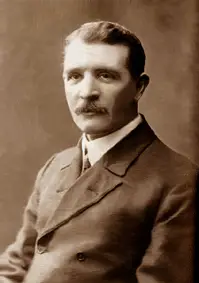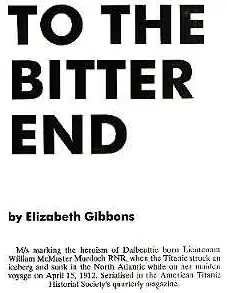28. In Conclusion
The late Edmund Pearson stated that the sea is not romantic to the professional sailor; it is the layman who looks there for what he called "spells and witchery". The sea is a battleground looming and extending in all directions and the battle goes on forever; it permits no mistakes and the only punishment it knows is death.

William Murdoch in his 30s.
(Click image to enlarge)
It is the most denied reality of existence that when faced with the choice between life and death, people do sometimes choose to die. There is no question that once he knew the Titanic was lost, William Murdoch consciously chose to die. The only life he wished was beyond retrieval regardless of whether he survived, some things go against the definition of self, but above all he had known since childhood that, one day, such a choice might be asked of him. The Kirkcudbrightshire Advertiser on April 26, 1912, stated simply: "No idea of leaving the vessel seems to have been in Mr. Murdoch's mind." Thus is it worded in dispatches.
Heraclitus observed that character is destiny. No one pursuing the paper trail that now constitutes the sole witness to William Murdoch's life can fail to note that those in Scotland who had known him all his life selected "brave" as an outstanding characteristic.
And in the Iliad it was Ajax, trapped against the sea by hopeless odds, who had said it was better to fight where one stood and thereby to live or to die, once and for all, than to battle on for years to no purpose.
